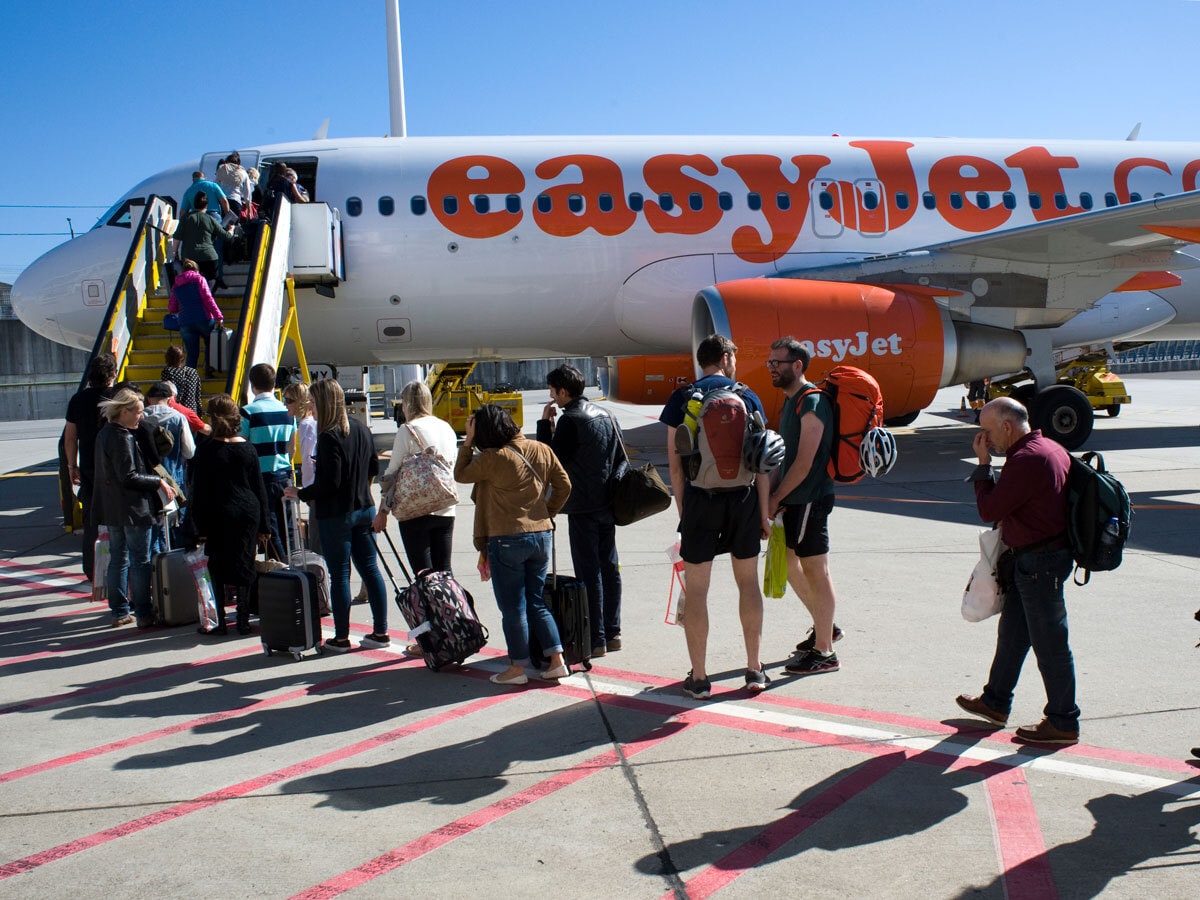Demand is back in the airline industry. EasyJet posted a high-flying set of half year results last week. Bookings were up, despite higher ticket prices, as people jetted off on foreign holidays after being stuck at home during the pandemic years. But ticket prices are climbing, and may continue to climb as the industry transitions to net zero.
EasyJet ’s [EZY.L] share price took off last week, after the low-cost airline revealed that revenues had climbed 80% year-over-year during the first half of its fiscal year. EasyJet said that it had hauled in £2.7bn for the period covering October to March. Helping revenue climb was a 74% increase in passenger revenue to £1.8bn.
Even with rising ticket prices, partly caused by increases in fuel prices, easyJet’s revenue per passenger was up 40% to £66.46. In the second quarter (Q2), passenger numbers were up from 11.5 million to 15.6 million. The airline described Easter business as robust, with 1,600 flights taking off per day during the period, and nearly 100% of flights running as planned despite strikes in France.
EasyJet’s package holiday offshoot, easyJet Holidays, proved particularly popular, with sales rising 218% to £175m.
Capacity came in at 9 million seats for the half year, up 9% year-on-year. EasyJet expects this to come in at 26 million in Q3 and then be back at pre-pandemic levels by Q4.
High demand and strong bookings led easyJet to announce that it expects to exceed profit expectations of £260m for the 12 months ending 30 September 2023.
Year-to-date, easyJet’s share price has flown up an impressive 57.67%, to close Friday 21 April at 511.8p. Over the past month easyJet shares have climbed 5.5% and shareholders might be wondering how much more altitude is left in the stock. Analysts tracking easyJet’s share price have a median 12-month target of 570p. Hitting this would see a 11.4% upside on Friday’s close.
Will higher ticket prices hurt easyJet’s share price?
After the pandemic, airlines are now facing something of a welcome conundrum. Ticket prices might be rising, but customers seem prepared to pay.
“We see continued strong booking momentum into summer as customers prioritise spending on travel and choose airlines like easyJet offering the best value and destination mix, as well as easyJet Holidays which is continuing its steep growth trajectory as the fastest growing holidays company in the UK,” said Johan Lundgren, CEO of easyJet.
Ryanair [RYA.IR] boss Michael O’Leary has predicted that airfares could rise 10-15% this year. However, he also forecast that traffic would rise by 10%, with strong booking numbers continuing through the summer. The demand appears to be there. In the three months to 31 December 2022, Ryanair customer numbers rose 24% to 38 million, while revenue increased 57% to €2.31bn. Year-to-date, Ryanair’s share price has climbed 21.3%.
Passengers have returned to airlines after the pandemic grounded planes and put the industry under threat. But how long will customers be willing to pay higher prices? A report from Sustainable Aviation released this month suggests that the UK sector could slow in the next few decades as airlines increase ticket prices to pay for carbon-cutting technology.
According to the report, ticket prices could increase between 10% and 20% to meet airline commitments to reach net zero by 2050. That cost is likely to be passed on to the customer. The report, however, says that there will still be demand, with 250 million extra passenger journeys expected by 2050.
How and when these savings are passed onto the customer is the question. At present, easyJet ’s share price is benefitting from customers being willing to stomach higher ticket prices after the pandemic made foreign holidays impossible. Then there’s the headwind that is the ongoing cost of living crisis. People might be willing to spend money on a foreign holiday coming out of the pandemic, but if the economy worsens, purse strings could tighten. If that happens, then easyJet and its rivals may well see a drop in demand.
Disclaimer Past performance is not a reliable indicator of future results.
CMC Markets is an execution-only service provider. The material (whether or not it states any opinions) is for general information purposes only, and does not take into account your personal circumstances or objectives. Nothing in this material is (or should be considered to be) financial, investment or other advice on which reliance should be placed. No opinion given in the material constitutes a recommendation by CMC Markets or the author that any particular investment, security, transaction or investment strategy is suitable for any specific person.
The material has not been prepared in accordance with legal requirements designed to promote the independence of investment research. Although we are not specifically prevented from dealing before providing this material, we do not seek to take advantage of the material prior to its dissemination.
CMC Markets does not endorse or offer opinion on the trading strategies used by the author. Their trading strategies do not guarantee any return and CMC Markets shall not be held responsible for any loss that you may incur, either directly or indirectly, arising from any investment based on any information contained herein.
*Tax treatment depends on individual circumstances and can change or may differ in a jurisdiction other than the UK.
Continue reading for FREE
- Includes free newsletter updates, unsubscribe anytime. Privacy policy





